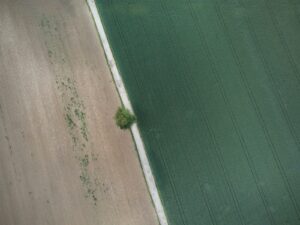The government is way off track from achieving its target of banning the use of peat-based soil by 2020, according to a new report.
When peat decomposes it turns into carbon, that carbon stays in the peat bog locked away from the atmosphere, meaning that peat bogs are great carbon sinks.
However, when peat is used as soil and is spread on a field or a garden it quickly turns into carbon dioxide, adding to greenhouse gas levels.
In a bid to prevent this, in 2010 the government agreed to phase out the use of peat in the amateur gardener market by 2020, however, the Growing Media Monitor report has revealed that between 2015 and 2019 the amount of peat used in the consumer sector only reduced from 53% to 41.5%.
Paul de Zylva of Friends of the Earth said: ‘Despite the government pledge to end peat sales to amateur gardeners by 2020 it’s still being stacked high and sold cheaply in most garden centres and DIY stores across the UK.
‘Peatlands are vital for supporting wildlife, holding back floodwaters and storing carbon. The government must do far more to protect them.
‘The latest figures show the horticulture sector is dragging its feet in ending peat-use – at this rate it will take them many years to go peat-free.’
Today also marks the first anniversary of a government commitment to ban burning on peatlands. Paul de Zylva added: ‘Letting the nation’s unique peatlands go up in smoke is senseless and makes it harder for ministers to hit their pledges to restore nature, cut flood risk and store carbon to stave off dangerous climate breakdown.
‘Whatever ministers have been told by lobbyists, burning peatlands has no place in credible nature conservation practice. It’s time to ban the burn and invest properly in peatland restoration.’
Photo Credit – Pixabay
















